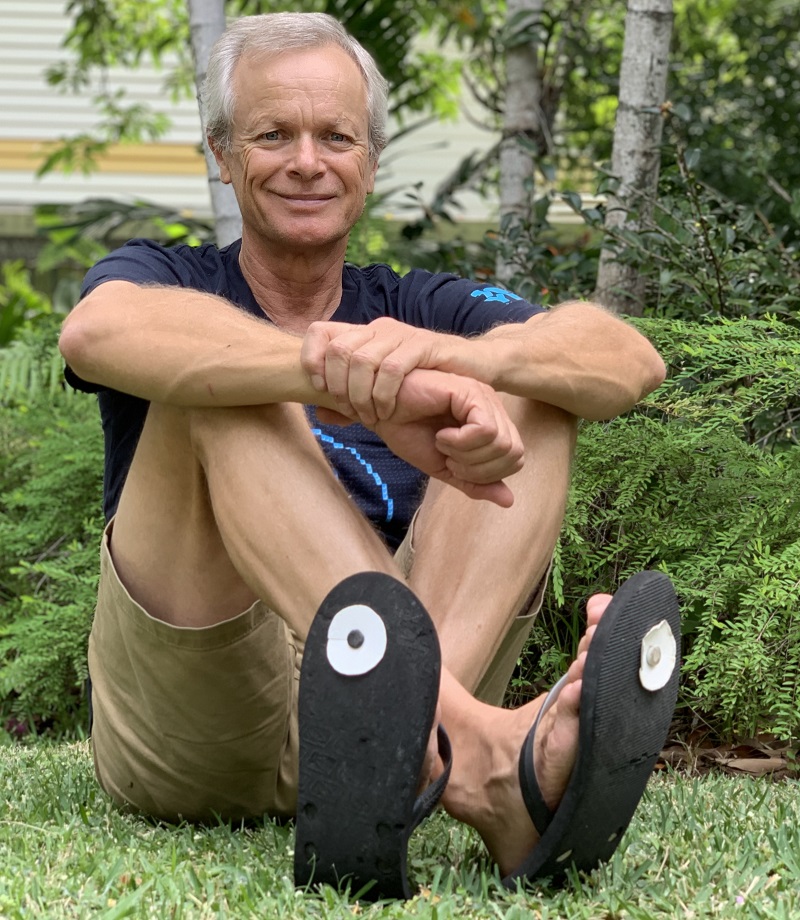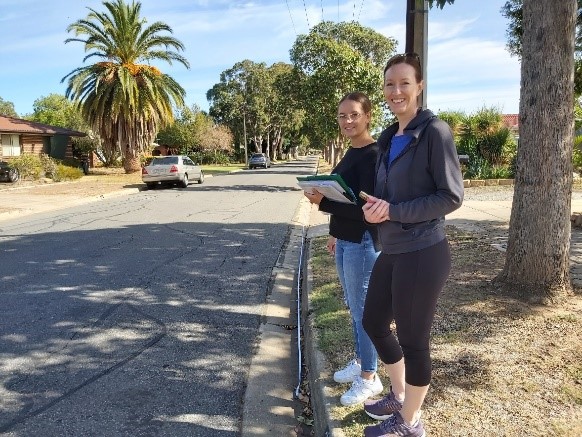Plastic Free July is a global movement that supports millions of people around the world to help end plastic pollution.
Australians currently generate 59 kilograms per person of single-use plastic waste per year.
At CSIRO, Ending Plastic Waste is a key focus for us. We're also working towards ambitious resource recovery targets for our own operational waste.
Our people ditch plastic
As the national science agency, we're always aiming to innovate. Our people are living up to that goal with their clever tips this Plastic Free July.

Ian Watson, is a Research Scientist and is committed to the reduce, reuse and recycle ethos.
“I like to prolong the life of my thongs by cutting the bottom out of plastic yoghurt containers to make plug holders. I find many thongs on the road, mostly singles, so I don’t actually own a ‘pair’ of thongs,” he said.
Audrey Towns is a Consultant with CSIRO Futures. She keeps her reusable kit handy so she’s always prepared.
“So much of the food we buy comes in perfectly reusable containers. I use glass jars for storing leftover sauces, nuts and smoothies. I also keep reusable produce bags in my car to avoid plastic wrapped fruit and vegetables," she said.
Hayley Boyd is an Executive Assistant and has come up with several simple ideas to swap out harmful plastics at home.
“Instead of plastic wrap, I use a cloth napkin to cover food in the microwave. I also use plates to cover bowls of leftovers in the fridge. I use hand-knitted cotton and wool cloths to wash the dishes (thanks Mum!)," Hayley said.
"At work I’ve replaced plastic highlighter textas with highlighter pencils, and pencils for pens. They work just as well and the shavings can go into the organic bins.”
Fiona Rothwell is an Executive Manager whose family is ready to clean up their act.
“We’ve switched back to old school bars of soap. We’re trialling bar shampoo (so far so good) to reduce plastic bottles in the bathroom," she said. "We’ve also decided that during Plastic Free July there’ll be a lot more home-baking. This will replace individually wrapped muesli bars and other snacks for lunchboxes.”
Hunting down plastic waste
Recently, our people were on the hunt for rubbish as part of our National Plastic Pollution Baseline Survey. They were capturing data on plastic pollution, which is an initiative of our Ending Plastic Waste Mission in development.
The survey aimed to capture as much data as possible on how much plastic litter is out there, the kinds of rubbish there is and where it is.

More than 30 staff from across CSIRO participated in this project. They recorded 793 items of litter, most of which was plastic. The majority of items were beverage bottle fragments, other hard plastics, and packing straps. This hardworking team completed 250 transects across 80 sites.
Caroline Bull, a Senior Research Scientist, participated in the survey and is aware of the detrimental impact plastic pollution has on the environment.
“My day usually consists of science relating to health. However, I was keen to contribute to another worthwhile cause. I found it wasn’t a huge commitment, and it was a great way to work with new people,” Caroline said.
“It was valuable to assist with data collection to contribute to a better understanding of plastic in our area. Learning how the various data technologies enable people to collect this data all over the country, and the world was interesting.”
Where does waste go?
Dr Denise Hardesty, who is leading the program, said the data highlights where attention is needed.
“By understanding what and where our rubbish ends up, we can understand where the hotspots are,” Denise said.
“The more surveys we conduct across a range of areas around the country - the better. We'll then be able to identify where to focus our interventions to help stop plastic ending up in the environment in the first place.
“For example, the item found the most during our recent survey was from beverage containers. This data can inform strategies being put in place by waste management such as container deposit schemes or education around recycling. It could also assist industry in improving production methods.”
We will conduct more surveys this year as part of a national baseline and monitoring program for Australia.
